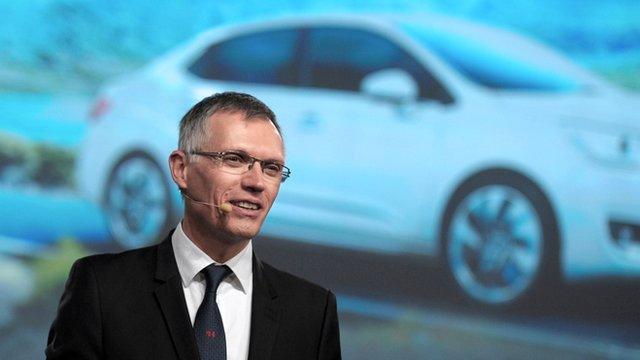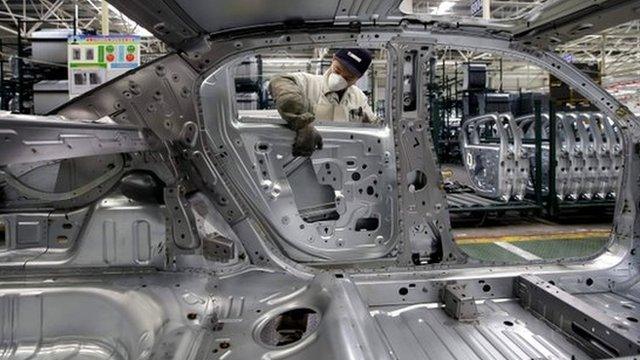Briton Linda Jackson takes over at France's Citroen
- Published
"Citroen is iconic, it is the French company," says its new boss, Linda Jackson
This weekend a British woman, Linda Jackson will take over as head of France's Citroen car company.
She is the third woman to take over as the head of a major car firm, following Annette Winkler at Smart and Mary Barra at General Motors.
"I think it's an absolutely fantastic opportunity," said Ms Jackson. who is currently Citroen's boss in Britain and Ireland.
Citroen is part of PSA Peugeot Citroen, Europe's second-largest carmaker.
Besides her appointment, Yves Bonnefont will also take over as head of the company's new luxury DS brand.
'Track record'
An executive with 35 years' experience in the car industry, Ms Jackson dismissed talk that being a woman - or British - had anything to do with her appointment.
"Do you know it's a question I have been asked so many times recently," she said.
"I actually hope its because of my track record, and I've got the job because I can do the job."
Ms Jackson, who takes as over this Sunday, follows Carlos Tavares' earlier appointment as PSA Peugeot Citroen's group chief executive.
Peugeot Citroen has been badly hit by its reliance on a stagnant European car market - recording net losses of 7.2bn euros ($10bn; £5.9bn) over the past two years.
In April, it unveiled a major recovery programme.
This included cutting costs, focusing on fewer car models, and its strategic partnership with China's Dongfeng Motors.

New models like the Citroen C4 Cactus are part of the group's recovery plan
'China key'
Ms Jackson said the company had significantly shifted its sales away from Europe.
"In 2008, I would say our sales outside of Europe were round about 20%.
"Now they are 41% - and our ambition is to be at 50% by 2015."
And it is China which will be a key component of the group's success, she said.
"We all know China is the market to be in. It is one of the biggest markets and will continue to be one of the biggest markets."
She denied that being a woman in what she called a "very macho business" had been a problem for her.
"I've never found that a problem. I don't know why there should be so few of us [in the business]," she said.
- Published14 April 2014

- Published20 February 2014

- Published16 May 2014
